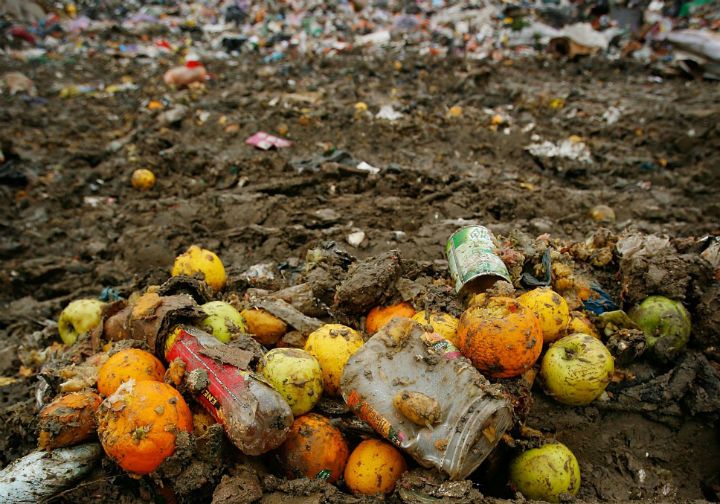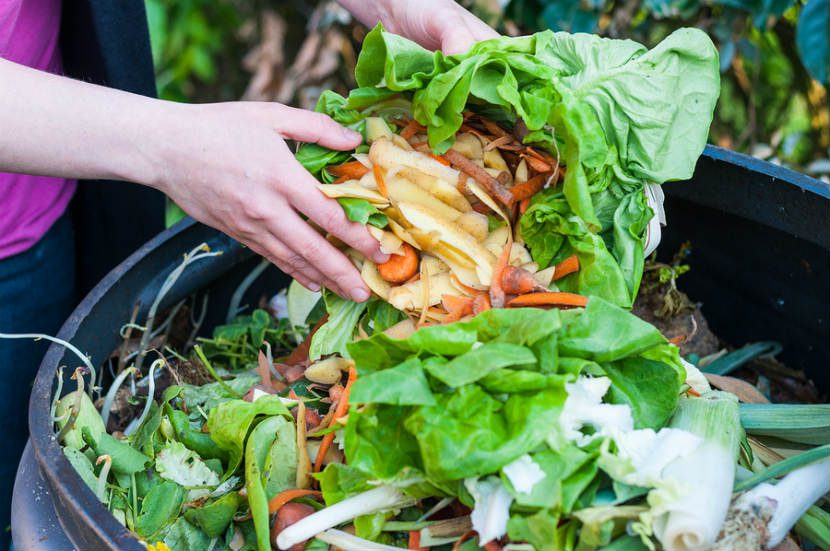How to Combat Food Waste and Save Money

Food waste is a major issue facing our planet today. According to the United Nations, one-third of all food produced in the world goes to waste. That’s an astonishing 1.3 billion tons of food every year. Not only is this a waste of resources, but it also has a significant impact on the environment, contributing to greenhouse gas emissions and the depletion of natural resources.
What is Food Waste?
Definition and Causes

Food waste refers to the discarding of edible food at any stage of the food supply chain, from production and processing to distribution and consumption. It encompasses both intentional and unintentional disposal of food that could have been consumed. Several factors contribute to food waste, including:
- Overproduction and Excess: Inefficient planning and forecasting can lead to surplus food that goes unused.
- Quality and Aesthetic Standards: Supermarkets and consumers often reject imperfect-looking produce, contributing to waste.
- Misinterpretation of Expiration Dates: Consumers frequently discard food prematurely based on expiration dates, even if it is still safe to consume.
- Lack of Proper Storage and Handling: Inadequate infrastructure and knowledge can result in spoilage and food waste.
The impact of food waste on the environment
Food waste has a significant impact on the environment. When food is thrown away, it ends up in landfills where it decomposes and releases methane gas. Methane is a potent greenhouse gas that contributes to climate change. In fact, food waste is responsible for 8% of all greenhouse gas emissions. Additionally, food waste contributes to the depletion of natural resources such as water and land.
The cost of food waste
Food waste is not only a waste of resources, but it also has a significant financial cost. Globally, the economic cost of food waste is estimated to be $1.2 trillion per year. This includes the cost of producing, transporting, and disposing of food that is never eaten. In the United States alone, the cost of food waste is estimated to be $218 billion per year.
Causes of food waste
There are many causes of food waste, including overproduction, spoilage, and consumer behavior. Overproduction occurs when too much food is produced and not enough is sold. Spoilage occurs when food is not stored properly and goes bad before it can be eaten. Consumer behavior plays a significant role in food waste as well. Many people throw away food that is still edible simply because they don’t like the way it looks or because they have bought more than they can eat.

Ways to reduce food waste
Reducing food waste is an important step in combating climate change and saving money. One way to reduce food waste is to plan your meals in advance. By planning your meals, you can buy only what you need and avoid buying more than you can eat. Additionally, by storing food properly, you can extend its shelf life and reduce the likelihood of spoilage. Another way to reduce food waste is to buy imperfect produce. Imperfect produce is just as nutritious as perfect produce but is often thrown away because it doesn’t meet certain aesthetic standards.
Creative ways to use food scraps
Food scraps can be used in creative ways to reduce waste. For example, vegetable scraps can be used to make homemade vegetable broth. Fruit scraps can be used to make homemade jam or added to smoothies for extra flavor. Stale bread can be used to make croutons or bread pudding. By using food scraps in creative ways, you can reduce waste and save money.
Technology and Innovations in Food Waste Reduction
In the digital age, technology offers promising solutions to combat food waste:
A. Smart Refrigeration and Inventory Management
Intelligent technologies can optimize food storage and inventory control:
- Smart Fridges: These devices monitor and adjust temperature settings, reducing food spoilage and waste.
- Automated Inventory Systems: Using sensors and data analytics, businesses can track stock levels, ensuring optimal inventory management.
B. Food Waste Tracking Apps
Mobile applications have emerged to help individuals and businesses track and reduce food waste:
- Food Waste Trackers: These apps enable users to log and track their food waste, providing insights and suggestions for improvement.
- Donation and Redistribution Platforms: Online platforms connect surplus food with organizations and individuals in need, streamlining the process of redistribution.
Meal planning and food storage tips
Meal planning and food storage are important steps in reducing food waste. When planning your meals, make a list of the ingredients you need and buy only what you need. When storing food, make sure to store it properly to extend its shelf life. For example, store fruits and vegetables separately to prevent them from ripening too quickly. Use storage containers to keep food fresh and prevent spoilage.

Composting and other sustainable solutions
Composting is a great way to reduce food waste and create nutrient-rich soil for your garden. By composting food scraps and yard waste, you can reduce the amount of waste that goes into landfills and create a sustainable source of fertilizer for your garden. Additionally, there are many other sustainable solutions to reducing food waste, such as donating excess food to food banks or using food waste to feed animals.
Organizations fighting food waste
There are many organizations fighting food waste and working to create a more sustainable food system. For example, the Food Recovery Network works to reduce food waste on college campuses by collecting excess food from dining halls and donating it to local food banks. The ReFED initiative works to reduce food waste in the United States by creating a roadmap of solutions for governments, businesses, and individuals. Replate is a tech-enabled nonprofit that aims to reduce food waste and food insecurity.
The Importance of Reducing Food Waste
Reducing food waste is an important step in combatting climate change and creating a more sustainable food system. By planning your meals, using food scraps creatively, and composting, you can reduce waste and save money. Additionally, supporting organizations that are fighting food waste can help create a more sustainable food system for everyone.
Reducing Food Waste FAQs
What is food waste?
Food waste refers to the discarding or loss of edible food, typically at various stages of the food supply chain, including production, processing, distribution, and consumption. It encompasses both foods that is left uneaten or spoiled before reaching consumers and food that is thrown away by individuals or businesses.
How can we reduce food waste?

There are several ways to reduce food waste:
- Planning meals and shopping smartly: Create a shopping list and stick to it, buy only what you need, and avoid impulse purchases.
- Proper storage and preservation: Store food correctly to extend its shelf life, use refrigeration and freezing techniques, and employ preservation methods like canning or pickling.
- Donating surplus food: Instead of throwing away excess food, consider donating it to local food banks, shelters, or community organizations.
- Composting: Convert food scraps and organic waste into nutrient-rich compost that can be used in gardening and farming.
- Raising awareness: Educate yourself and others about the importance of reducing food waste, and share tips and strategies for minimizing waste.
Why is food waste a problem?
Food waste poses several significant problems:
- Hunger and food insecurity: Wasting food means that resources used for its production, such as land, water, and energy, are also wasted. This exacerbates the global issue of hunger and food insecurity.
- Environmental impact: Food waste generates a substantial amount of greenhouse gas emissions, as it decomposes in landfills, releasing methane, a potent greenhouse gas. Additionally, the resources used to produce wasted food, such as water and fertilizers, are wasted as well.
- Economic losses: Food waste represents a significant economic loss for individuals, businesses, and economies as a whole. Wasted food translates to wasted money spent on production, transportation, and storage.
- Ethical concerns: With millions of people worldwide suffering from hunger, throwing away edible food raises ethical concerns about equitable distribution and resource allocation.
Is food waste a global problem?
Yes, food waste is a global problem. Every year, around one-third of all food produced for human consumption, is lost or wasted. This amounts to approximately 1.3 billion tonnes of food, valued at nearly $1 trillion.
What is the impact of food waste?
The impact of food waste is multifaceted:
- Environmental impact: Food waste contributes to greenhouse gas emissions, deforestation, and water pollution, as resources are inefficiently used in their production and disposal.
- Economic impact: Food waste represents a significant economic loss for individuals, businesses, and governments, as valuable resources are wasted instead of being utilized effectively.
- Social impact: Food waste perpetuates food insecurity and hunger, affecting the most vulnerable populations. It also contributes to social inequalities and disparities in resource distribution.
- Resource depletion: The production of food requires vast amounts of resources, including water, energy, and arable land. Wasting food means squandering these valuable resources that could be used more sustainably. Addressing food waste globally is crucial for sustainable development, ensuring food security, and mitigating the environmental impact of food production.




